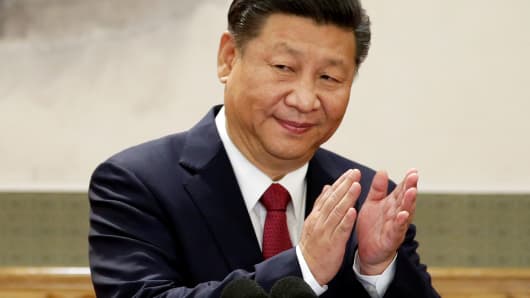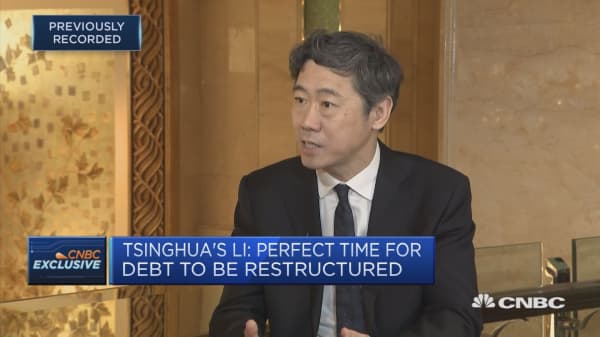China is also building a $50 billion "economic corridor" in Pakistan, connecting Xinjiang to Arabian Sea port cities of Gwadar and Karachi with a network of highways and high-speed rail services. Pakistani ports are supposed to keep open China's access to the Middle East and Africa — and beyond — in case, as some Chinese strategists fear, the Straits of Malacca are blocked by the U.S. and its allies.
That Arabian Sea access is opening a key lane to China's strategic locations in the Mediterranean. The most important such point is the Greek port of Piraeus, the largest in South Europe, where China purchased a majority ownership for 280.5 million euros. That creates a springboard for billions of dollars of Chinese investments in high-speed rail connections to Central and Eastern Europe through Macedonia, Serbia and Hungary.
Along with the North Sea Route to Europe, jointly developed with Russia, those are all investments of great strategic importance to China. Closer to home, China also announced a number of similar — dual-use and military — investments last week.
More than 40 space launches are expected this year, including the heavy-lift Long March 5 rocket, far side Moon missions by Chang'e 4 lunar lander and rover, and new Beidou navigation satellites.
The country's armed forces, funded last year by an officially declared military budget of $215.7 billion, are now primed to get better and to win wars with power projection assets like aircraft carriers. The construction of a third such vessel is currently under way, and a total of four battle groups are planned over the next 10 years.
Let's stop the litany here to see what all that means for Washington's dealings with its chief "strategic competitor."
First, a lesson should be drawn from a dreadfully wrong strategic assessment that promoted investments in China and opened American markets to goods and services from China's low-cost production facilities on the idea that the Middle Kingdom would soon shake off its Communist ideology to create a "Chimerica" wonderland — a capitalist, U.S.-compatible economic and political ally.
Second, that U.S. policy blunder allowed China to build a readily deployed treasure chest of more than $3 trillion, and an additional $2 trillion in short- and long-term international investments.
Third, the U.S. should stop chasing after China's global initiatives. That is a useless waste of time and resources. Leave it to American defense experts to protect the country's security and its vital national interests. They have plenty of money and power projection instruments to do that.
Fourth, stay away from blatant trade protectionism and dumb protectionist rhetoric. Get a smart economic diplomacy by following World Trade Organization- and International Monetary Fund-compatible principles of fair and reciprocal trade to correct systematic (beggar-thy-neighbor) and excessive trade imbalances.
Here is a hypothetical example of what that policy would do if the U.S.-China trade were to be balanced. Taking the trade numbers for the first 11 months of last year, such a trade equilibrium would imply tripling the current U.S. exports to China — if China insisted on exports of $460 billion to the U.S.





